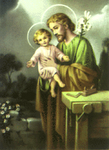I just read The Giving Tree by Shel Silverstein for the first time. Now, I do remember having the book read to me at the public library when I was little, and I am pretty sure it was featured in Reading Rainbow, so the story is not new to me. However, since this is the first time I ever read the story on the other side of parenthood, I was surprised by my overwhelming emotional reaction to the book. I read it as a bedtime story to my two lovely girls and I wept for the brief interval of time where I can help form them as young Christian ladies.
More surprising to me than my emotional response, was how I understand the Tree much better now. As a child, I guess I pitied the tree and sympathized with the boy. I simply expected that the Tree enjoyed helping the boy so the Tree was happy. Now I know that the Tree did enjoy helping the boy, but that the Tree suffered as the boy grew since the boy grew further away. I guess The Giving Tree taught me the lesson of love which I only absorb intellectually from the tree of the cross. Successful love, like successful parenting, involves suffering. The better I do my job of raising my daughters into mature, independent ladies, the more I will miss these years of providing everything for them.
Subscribe to:
Post Comments (Atom)

2 comments:
So what is the embarrassing part?
Until a few months ago, for a long time The Giving Tree was Luke's favorite. I always have to struggle a little bit to get through it. It's a really beautiful story. I love the simplicity of the artwork. Luke can "read" good portions of it on his own too. If you really want to spoil the story, the library has a recording of the author reading it himself. Sorry, Shel, but you sound like a creepy guy.
The embarassing part is being so weak in front of my daughters. It comes into the whole confusion over manhood. Typically, stoicism is what I associate with manhood so it is difficult to be so intensely emotional with an audience.
I am aware that even Jesus wept and that the Agony is the Garden was intense emotional suffering. Perhaps it's just a weakness that I stand clear of such emotions. Integrating these two parts seems one of dilemmas in searching for authentic manhood.
Post a Comment